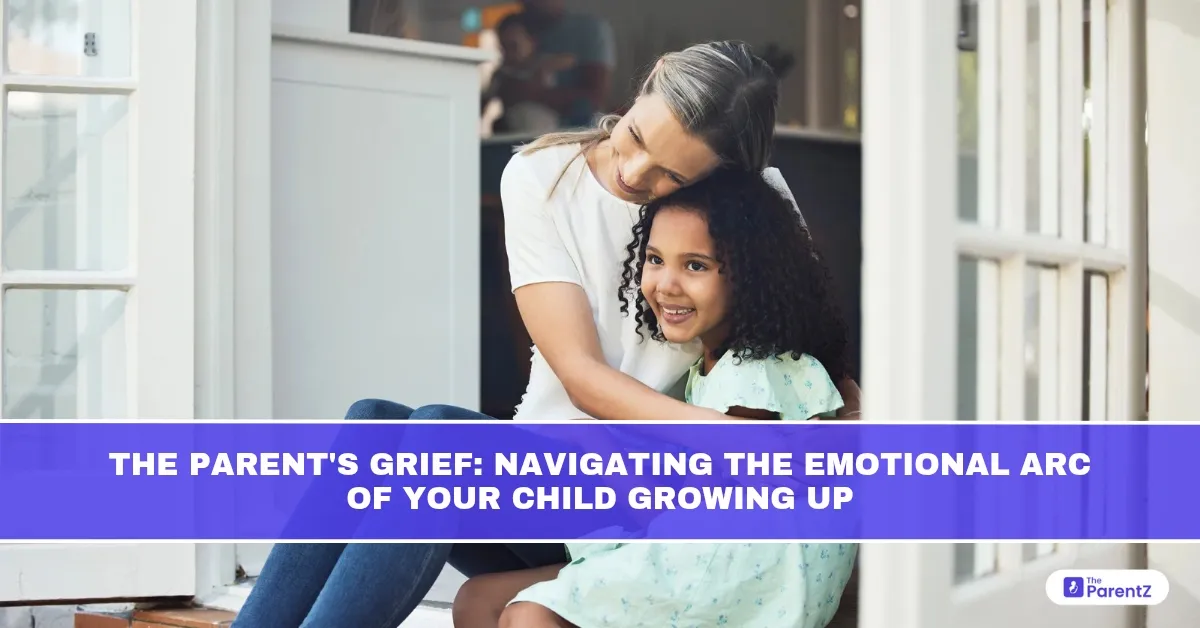You knew this day would come—everyone told you it would—but that doesn’t make it any easier. One day, you’re rocking your baby to sleep. The next, they’re brushing past you, earbuds in, heading out the door with barely a glance. The toys have been traded for passwords, playdates for group chats, and suddenly, the house feels too quiet in all the wrong ways.
You’re not just watching your child grow. You’re letting go, piece by piece. And yes, there’s grief in that.
Read this article to know how you can navigate the emotional arc of seeing your child grow up so fast.
It’s Okay to Miss Who They Were
There’s something no one prepares you for: the ache of missing your own child while they’re still right in front of you. Not because they’re gone—but because they’ve changed. Because they had to.
You might miss the way they once reached for your hand without hesitation, or how their entire world used to orbit around you. Now, their orbit is widening. And while pride swells in your chest, there’s also an unmistakable tug of sorrow.
You’re allowed to miss who they were. That doesn’t mean you love who they are any less.
Growing Up is a Series of Little Goodbyes
The first day of school. The first sleepover. The first time they didn’t need your help.
Each milestone is a celebration wrapped in a quiet goodbye. You smile for the pictures, cheer at the finish lines—but inside, you feel the shift. You’re losing something familiar, even as something beautiful is blooming.
Parenthood is a long process of holding on just enough and learning how to release without falling apart.
Your Role Is Changing, Not Disappearing
You’re still their safe place, even if they don’t crawl into your lap anymore. The hugs may be quicker, the questions less frequent—but they’re watching. They still look for your approval, your calm in their storm, even when they pretend they don’t need it.
You haven’t been replaced. You’ve just been reshaped in their story—from caretaker to guide, from hero to witness.
And that’s still everything.
Make Space for Your Grief
Maybe you’re crying in the car after drop-off. Or staring too long at the baby clothes you swore you’d donate but never did. This isn’t silly. This isn’t weakness. It’s a natural, honest response to change.
You’re grieving the version of parenthood you once knew. That grief deserves space. Name it. Sit with it. Talk about it. You’re not alone, even if it feels like no one else is saying it out loud.
Growth Is a Gift—And a Loss
It’s a privilege to watch them become. But it’s also a loss. And losses, no matter how expected, still hurt.
Yet, here’s the secret: every time you feel that sting in your chest, it’s a reminder that you showed up. You loved deeply. You were all in.
This ache? It’s proof that you were there for the messy, magical becoming.
They’re Still Yours
Your child doesn’t stop needing you—they just need you differently.
Yes, there will be distance. There may be eye-rolls and slammed doors and entire afternoons of silence. But there will also be moments—quiet, honest, unexpected—where they come back to you. For advice. For comfort. For the kind of love only you can give.
Stay close, even if they stray. Be steady, even if they shift. You’re still home.
Conclusion
Your tears are valid. So is your pride. They can co-exist. In fact, they always do.
Because parenting is a paradox. You cheer as they fly while mourning the end of the nest. You want them to need you—and to outgrow you, all at once.





Be the first one to comment on this story.